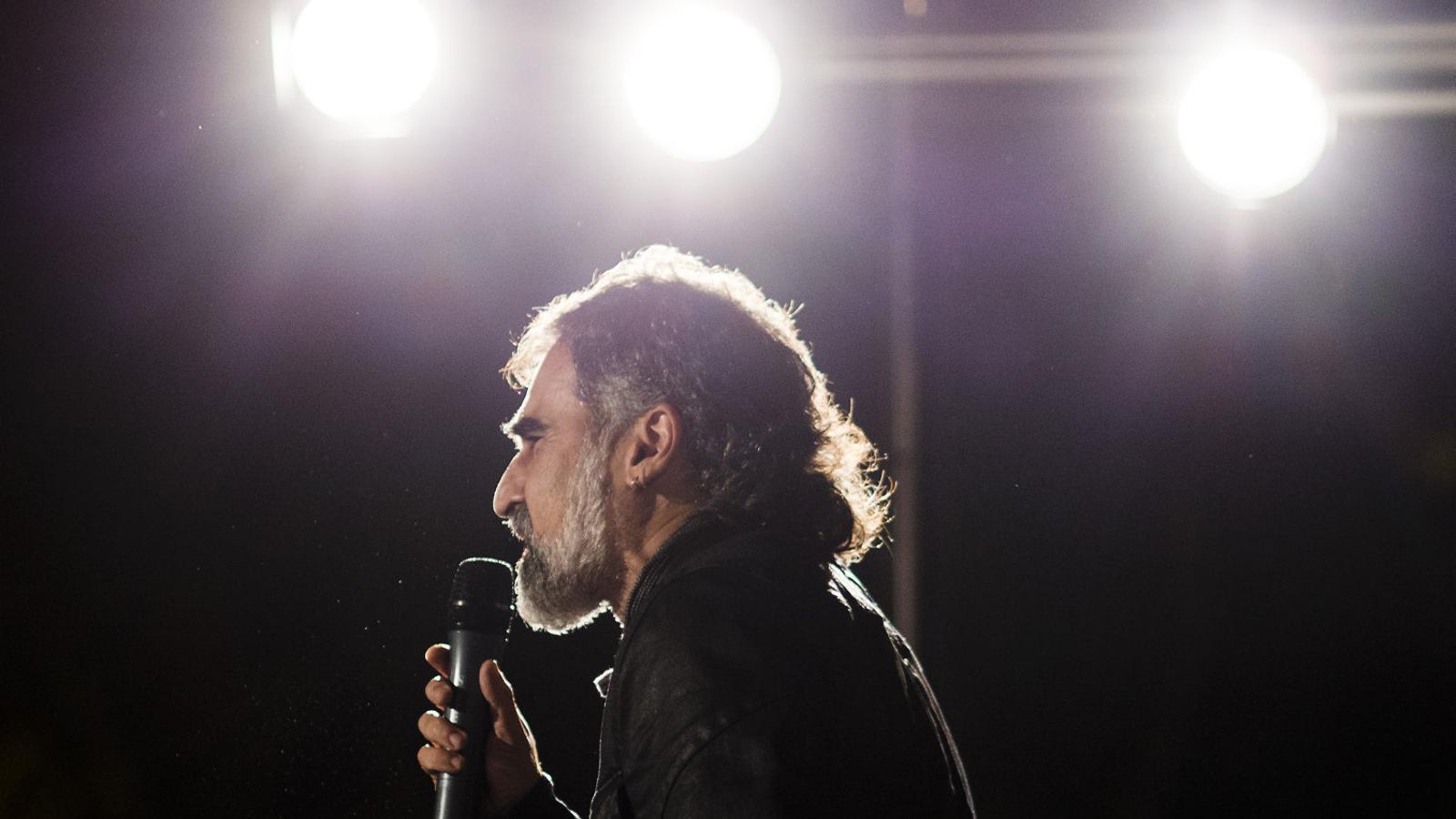A bridge builder who makes parcels
From patron of pro-sovereignty organizations to leader of the Independence bid


BarcelonaLike the pottery he learned to do in prison, Jordi Cuixart (Santa Perpètua de Mogoda, 1975) has shaped life with his own hands. He discovered culture when he opened the door of his uncle's bookshop; at 16 he picked up a broom in a workshop and earnt his first salary, which he spent becoming a member of Amnesty International. He declared himself a conscientious objector and at the age of 28, already a graduate in industrial design, he opened his own company: Aranow, a packaging company. In the 2000s, his name was often heard in pro-sovereignty circles. It was said that he was a successful businessman who gave money to organisations to help the cause. That's how Oriol Junqueras and Elisenda Paluzie met him in 2007: they were starting the Sobirania i Progrés platform and knocked on his door looking for funding. An example: the cars that transported the international observers in the 2011 Barcelona Decideix consultation were covered by a vinyl that Cuixart's company provided free of charge.
A year earlier, Muriel Casals was elected president of Òmnium and Cuixart accompanied her as treasurer –he renounced all public subsidies–. And the Jordis were born. Before his duo with Sànchez, Casals coined it to refer to Cuixart and Jordi Bosch, from Òmnium's board. "You'll negotiate that with the Jordis," she would say in conversations about the road map in 2015, according sources present in the conversations. There, Cuixart showed that he was "a bridge builder," "and he has not stopped trying." "He is a man of transformative ingenuity: everything is to be done and everything is possible." At the end of 2015 he became president of Òmnium and made shared struggles his motto. The "energetic and charismatic" Cuixart began to appear on TV: "He is just like that".
The worst good year
The hardest days were in Soto de Real prison. "He was thin and very spiritual. He was with Sànchez, but in different modules. That is, alone: on January 8, 2018, the lawyers went to see them, and the Jordis arrived separately. When they saw each other, they hugged and wished each other a happy new year; they had not seen each other since before Christmas. After his statement in the Supreme Court, Cuixart changed his attitude. He was "expansive" again. The Cuixart who said of "We will do it again" in the trial.
In Lledoners he was "the most loved prisoner by the other prisoners", who listened to him singing songs over the phone to his son. Camí was born when he was in prison. There he never took off his Òmnium "hat", that of "greasing relationships". But "kindness goes in parallel with firmness". "When he gets angry, he gets angry," say people close to him. Cuixart is "optimistic", he raises the spirits of campaigners. And he hugs, "hugs a lot".
With the pardon he fulfilled the promise of not allowing the State to choose the president of Òmnium. In Lledoners, however, he already hinted in conversations that he would not run again. The prisoners did not believe it. Now, many have been taken by surprise. Others have not: "Your silence overwhelms me, Jordi," wrote one person on Thursday. At a demonstration in December he had asked Paluzie how the takeover at the ANC (there will be elections in April) was going. Now he opens a new stage from which he has already ruled out institutional politics. There are people who encourage him and others who are not so sure. "He is the best leader out of the nine political prisoners," says a close source. "I would vote for him," he insists.
